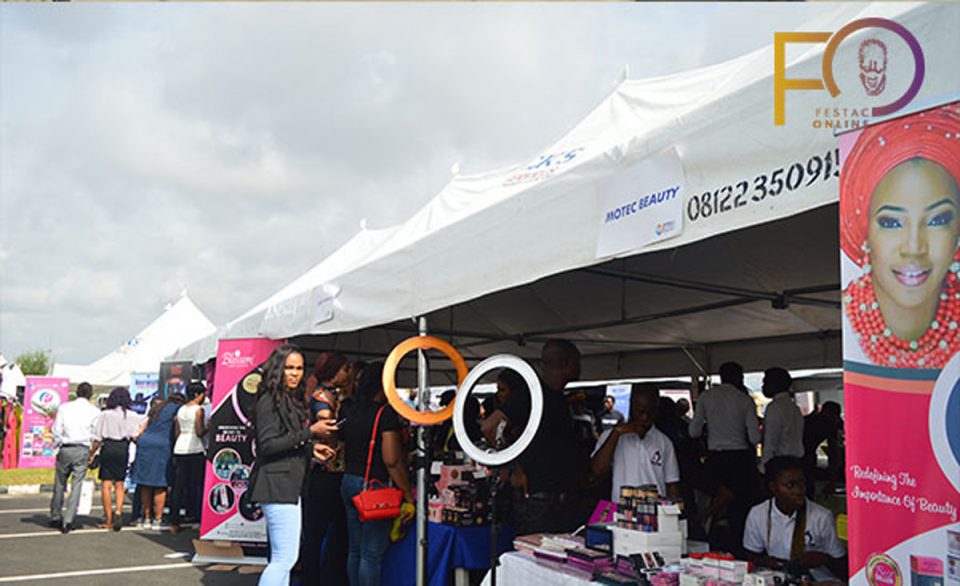Small and Medium-Sized Enterprises (SMEs) have called on the Federal Government for financial assistance and infrastructure to enable them acquire machinery and source materials that will aid production.
The SMEs in separate said at the ongoing Megacity Fair in Lagos on Sunday lamented that paucity of funds had affected the growth of their businesses.
They, however, urged government to assist entrepreneurs with soft loans or grants to buy materials for products and machines to produce in large quantities, which had been major challenges facing their businesses.
The entrepreneurs said this had become imperative because the availability of loans at commercial banks was no longer a major limiting factor but the bank interest rates were beyond them.
Mrs Frances Anumba, who is into textile production, attributed her major problem to getting quality fabrics that would give customers value for their money.
She added that there were very few textile companies in Nigeria producing durable Ankara fabrics at affordable rates and for this reason most fashion designers resorted to buying foreign fabrics.
Anumba commended Aba as a commercial nerve centre of indigenous manufacturing in Nigeria but lamented that the market lacked machine for finishing their products.
“If we have our fabrics, buttons, zips, threads done here, it will be cheaper; all these things are what makes it expensive but we don’t have the machinery.
“Go to Aba, you’ll be amazed at what they produce but lack machines for proper finishing; if we have the same machines they have abroad, the sky is our limit,” she said.
Anumba said many entrepreneurs seeking loans for machinery could not meet the banks’ requirements because they did not produce in large scale.
She urged government to provide loans and grants to enable entrepreneurs develop Nigeria’s sustainable fashion industry.
Mrs Chioma Chukwunyelu of Unerret World, an Ankara clothing and accessories brand also reacted.
Chukwunyelu said the Central Bank of Nigeria’s (CBN) move to revive Nigeria’s textile industry had made the bank to place a restriction on forex access to importers of textiles and other clothing materials.
She said the revival of textile industries would facilitate value added and make fabrics more affordable and salvage some of the job opportunities lost to buying from foreign lands.
Mrs Grace Otuokere, Creative Director, Zapphire Couture said entrepreneurs were the backbone of any developed nation’s economy, saying that for it to stand the test of time, there must be easy access to funds to buy necessary equipment.
Otuokere noted that producing dresses that could compete with international standards costs her so much time because she lacked the manpower with adequate skills to produce her designs.
She said for entrepreneurs in the country to reap the full benefits of a dynamic and evolving economy, however, required the overcoming of financial, electricity and inadequate raw materials hurdles.
The director urged government to increasingly work to improve the ease of doing business by developing and implementing more pro-market policies and making the entire business environment more attractive to investors.
She said SMEs globally had become highly technology-driven and Nigeria must tag along and must embrace regular training and retraining of her manpower to make a difference for competitive advantage in the global market.
Otuokere, however, urged both private and public organisations to establish training institutes that would improve manpower development in different sectors of the economy.
Mrs Udoka Nwosu, Creative Director, Eudokas Natural Skincare said she did not have problems sourcing materials for her products because they were available locally within Nigeria and West Africa.
She noted that abiding by National Agency for Food and Drug Administration and Control (NAFDAC) and U.S. Food and Drug Administration (FDA) specifications had given her brand more visibility in the local and international markets.
Nwosu, however, said her major challenge was the lack of capacity to meet the demands of her customers because of inadequate machinery for production.
She added that epileptic or lack of power supply made operating the business even more challenging than usual and the cost of fuel to run generators had become a problem.
Nwosu urged the Federal Government to create the necessary infrastructure to support entrepreneurship with adequate access to funds, stable electricity and a regulatory environment.
She said with these in place, Nigerian entrepreneurs would compete favourable with their foreign counterparts and revive the economy.
“We need mechanised and automated systems to help reduce the hours of production, resources spent in generating power; this will help crash prices. We will produce more and meet our demands.
“Also easy access roads will also be an advantage to sources of raw materials and would also reduce the high cost of goods,’’ Nwosu said.




